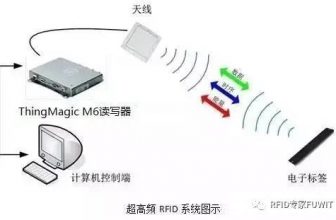
Apparel and RFID application cases-10 brands
[ad_1]
01
Luxury brand Prada
Since November 2001, the world-famous Italian clothing brand Prada Advanced Garment Group has installed RFID electronic tags on clothing, recording the style, size, color and other details of the clothing and price information.
Whenever a customer wears Prada clothes and passes through their store, the RFID system will control the display in the store to show the model showing the same clothes on the T-shaped stage in Milan.
This application of RFID technology has greatly enhanced consumers’ sense of accomplishment after purchasing Prada products.
02
International brand H&M
H&M applied RFID technology in 2014. H&M plans to subsequently install RFID radio frequency identification technology in 1,800 stores to automatically count product types, quantities, and consumption.
03
Decathlon
Decathlon established its own RFID company, Embisphere, in 2010. At present, about 85% of its products use RFID tags. In addition to being used in inventory and supply chain management, it has also implemented bulk checkouts in stores to reduce customer queues. Time to improve customer experience.
Jean-Marc Lieby, who is in charge of the Decathlon RFID project, said that RFID technology has increased the inventory efficiency by 5 times and reduced the loss rate of goods by about 10%.
04
ZARA
In 2014, Zara’s parent company Inditex decided to use RFID technology to improve the group’s supply chain, and stated that RFID is a key innovation in the new generation of store management.
In the first half of 2016, the CEO of Inditex publicly stated that approximately 70% of major brands have improved inventory and supply through the application of RFID technology. In addition, they have also improved design, production and distribution. Sales in the first half of the year have increased by 11.1%. The ratio reached 10.47 billion euros, and profits increased by 7.5% to 1.26 billion euros.
ZARA achieves ultra-high efficiency through RFID technology, and it only takes about 10 days from the design concept to the finished product.
05
Uniqlo
In 2017, Uniqlo announced that it would launch RFID (Radio Frequency Identification) electronic tags to 3,000 stores worldwide, including 2,000 outlet Uniqlo stores. Uniqlo is the world’s first Japanese retailer to use electronic tags on a global scale.
06
Hailan House
At the end of 2014, the research and development of the “RFID streamlined reading system” was officially launched, and the three companies were selected as the label suppliers of the RFID streamlined reading system of Hailan Home. The label contains the product number and color, quantity, specification, quantity, etc.
The RFID streamlined reading system was officially launched in early 2016. After the system was put into operation, labor costs were greatly reduced, the efficiency of receiving and delivery was improved, and clothing companies were helped and optimized supply chain management.
It is understood that after the introduction of RFID technology, the labor consumption in the receiving process is reduced to 1/3 of the original, and the efficiency is increased by 5 to 14 times.
07
red beans
In 2016, Hongdou Men’s Clothing adopted RFID technology and launched a smart store, ranging from holographic projection to smart shelves, smart fitting rooms, and personalized DIY customization.
08
Peacebird
In 2016, Peacebird used big data and RFID technology to automatically record user behavior data solutions to provide more market information for Le Ding’s new women’s clothing, help it conduct customer behavior analysis and user behavior analysis, and analyze which styles are most popular with consumers welcome.
09
La Chapelle
In 2016, La Chapelle Group plans to introduce RIFD technology to the entire brand, including clothing factory labels, logistics center inspection and delivery and transportation, fast store acceptance, inventory management and intelligent management.
Multi-node data collection lays the foundation for big data analysis. Through clothing RFID, omni-channel data links can be opened, the efficiency of each link can be improved, and products can be shared with accurate data.
10
Fashion brand “Inman”
On May 5, 2017, the Internet fashion brand Huimei Group officially applied RFID technology (Radio Frequency Identification) to one of its main brands “Inman”.
In this project, Inman will embed an RFID chip in each new product, which is smaller than rice and is not easy to detect with the naked eye. In the future, Inman can track the number of times users take clothes when using Inman+ offline experience stores and the number of times users enter and exit the fitting room, and analyze the data to make product adjustments.
[ad_2]





